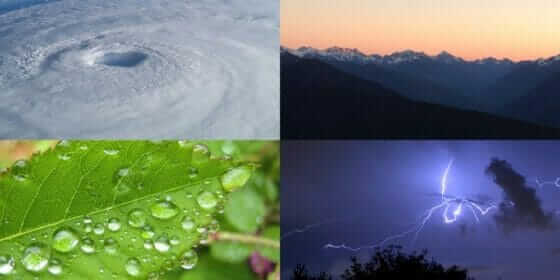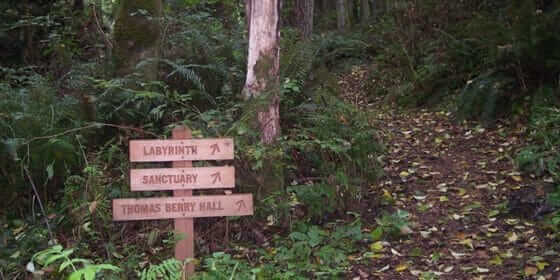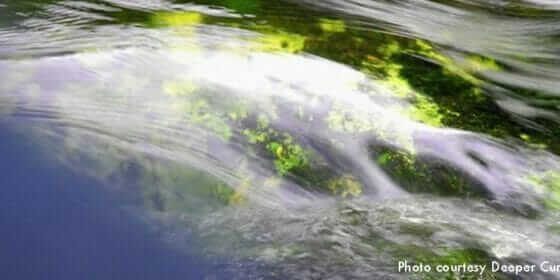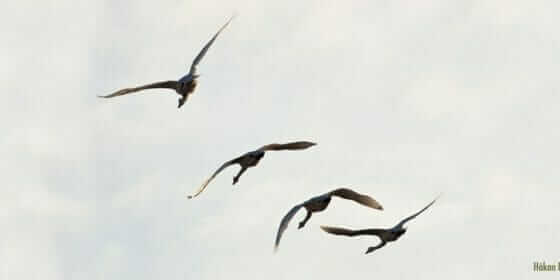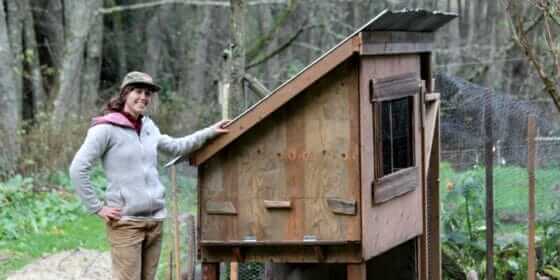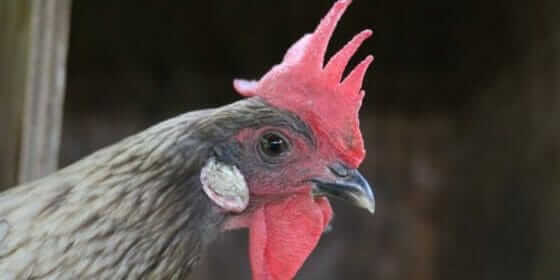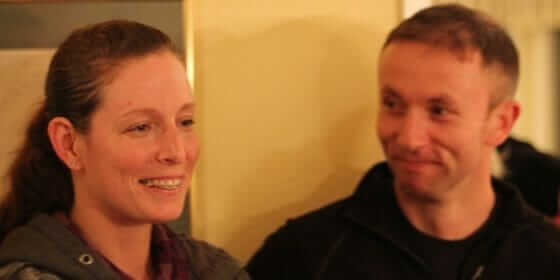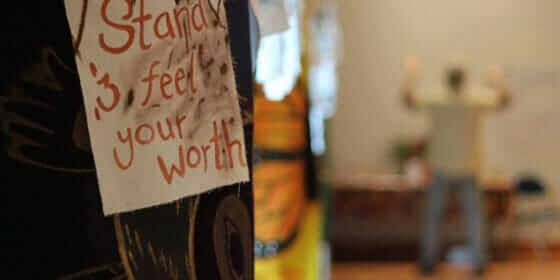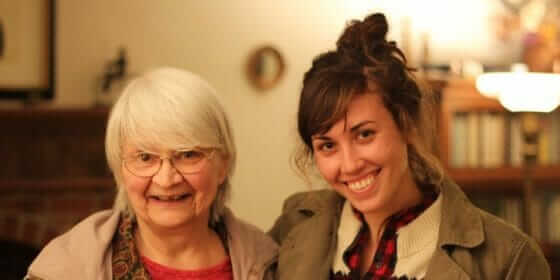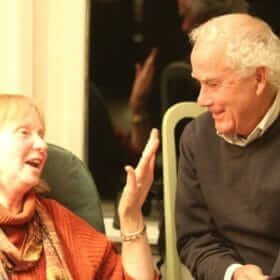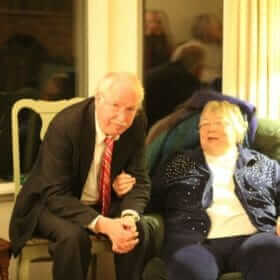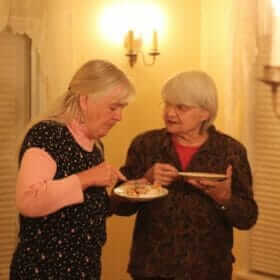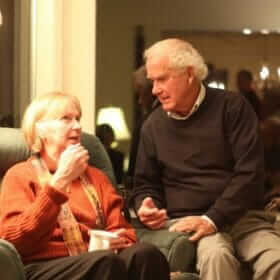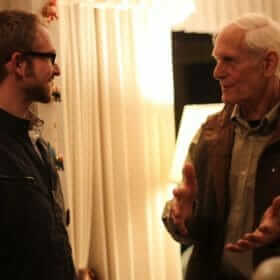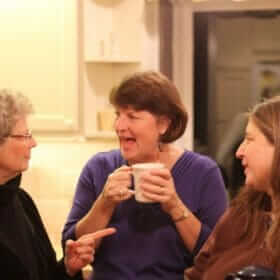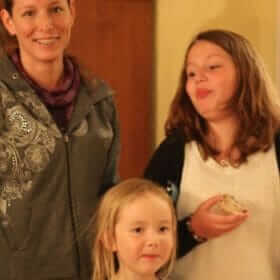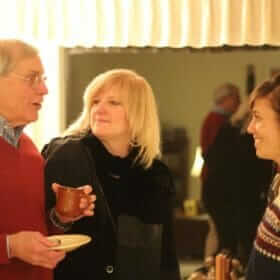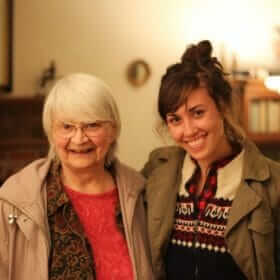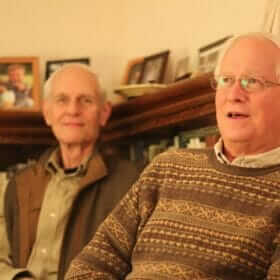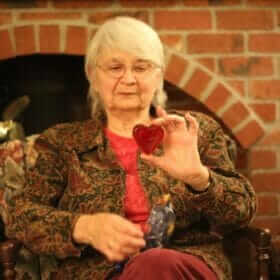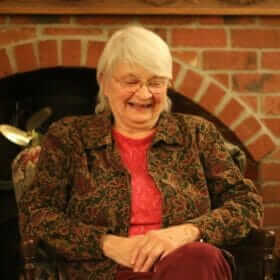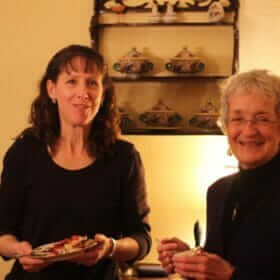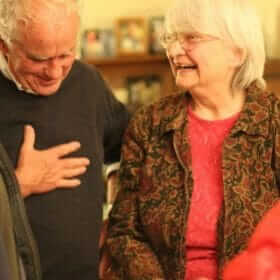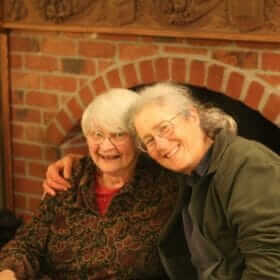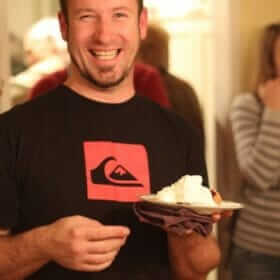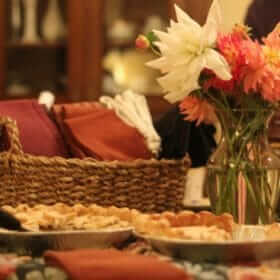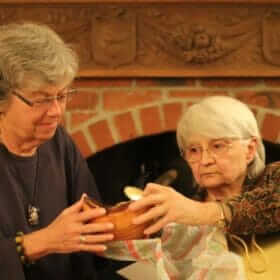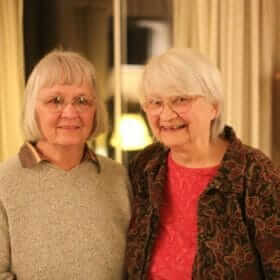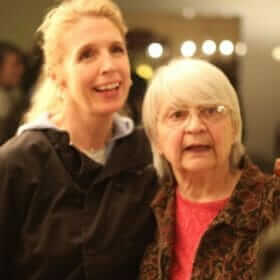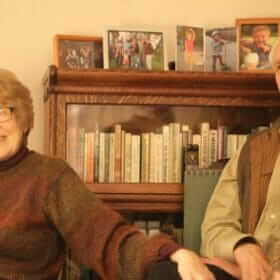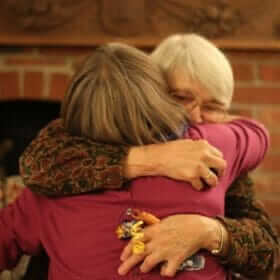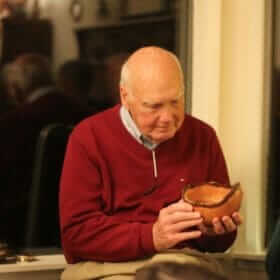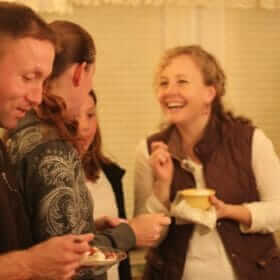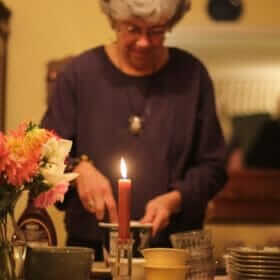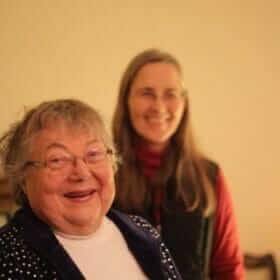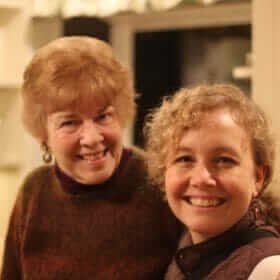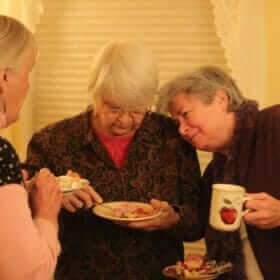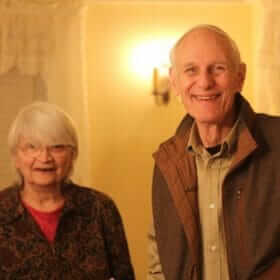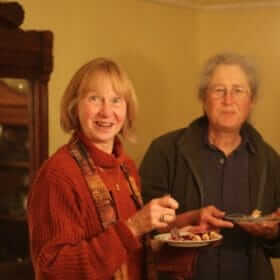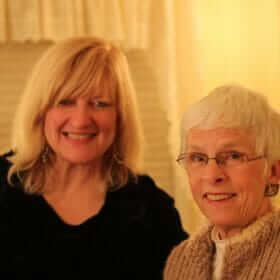This article was originally published in summer 2014.
Dan McKee, a program partner who leads Warrior Monk retreats at the Whidbey Institute and elsewhere around the world, recently spoke with Communications Manager Marnie Jones about his work, the Warrior Monk program, and the fit of his work with that of the Institute. Here’s that conversation:
Marnie: Can you distinguish between the work of Deeper Currents and Awakening Life?
Dan: Deeper Currents is my business for organizational leadership development work, which includes the coaching and facilitation of leadership in individuals and teams, and organizational culture and strategy. Awakening life is a non-profit 501©(3) foundation that a small group of us set up in 2002 to provide work such as Warrior Monk to individuals that are on their own personal development path. The leadership work I do in organizations through Deeper Currents uses many of the core principles found in the Warrior Monk work, such as greater self-awareness, purpose and service-driven leadership, and mindfulness. So, while the two organizations serve different purposes, there’s a lot of shared practice and intention between them.
Marnie: Can you tell me more about how your organization Awakening Life began?
Dan:I had been involved in leading the Warrior Monk retreat and other non-profit, purpose-driven personal work for a few years, and wanted an organization that could serve as a home for good work. Work that would be integral in nature, combining psychological, spiritual, emotional and physical . . . and in a way that people could truly make practical for their lives, rather than theoretical; and open to all teachings, rather than fundamental or aligned with a single path or belief system. Warrior Monk was placed under the ownership and stewardship of Awakening Life, ensuring its place separate of private ownership.
One of the key considerations was that all of the work through Awakening Life is set up to be accessible to people based on their ability to pay and value received. It’s one of the tenets of this non-profit, to make it possible for anyone to access this kind of deep work. Tuition contributions are all tax-deductible.
Marnie: Do you continue to learn from your work in Warrior Monk and Awakening Life?
Dan: Absolutely. It’s really important to me that I, myself, and the staff—the women and men who staff Warrior Monk—do continue to learn. It’s a core value that we each do our own work throughout the course of the year. I also learn a tremendous amount from people coming through the retreat. I often find myself sharing wisdom teachings that are actually things shared from participants from previous retreats.
Marnie: You recommend prior work in personal, spiritual, or psychological development for program registrants. Can you elaborate on that?
Dan: That’s a tough one to place out there before people because we’re very committed to [ensuring that] people from all walks of life and whatever background have access to work that can meet them where they are. We do go pretty deep, emotionally and psychologically over those four days, so it’s helpful if folks have done some inner work: therapy, meditation practice, men’s or women’s work, recovery. Work that’s had them turn inside and look at who they are in some significant way. And, anyone that shows interest, I’ll have a conversation with to help us each determine. I have a pre-retreat check-in call [with each participant] and occasionally in that conversation, it can become clear that they are not ready for the work or that the work is not a fit for them. That’s rare. Most people that are drawn to it are quite ready so I always encourage a conversation, if at all uncertain.
Marnie: Is each Warrior Monk retreat different?
Dan: The contents of the retreat get tweaked and refined here and there based on the experience and feedback we get, but it’s been primarily the same body of work facilitated more or less the same away over the last dozen years and nearly a hundred retreats. Because we create such a powerful and intimate environment, and because we create such safety around that, the uniqueness of the group’s individuals will significantly flavor each retreat.
Marnie: Can you tell me what inspired your own personal foray into this Warrior Monk work?
Dan: I started in my teens doing work as broadly diverse as est, traditional Western therapy, buddhist, native American and hindu practices. Over the next 20+ years I threw myself into a lot of different growth modalities, with the secondary intention—following the primary hope to personally grow up and wake up—of someday being able to work as a guide, helping others. Through those years I worked with a number of teachers and mentors, and steeped myself as a student in a lot of different practices. While being drawn to many individual paths and teachings, I came to believe that a more integrated model of work, set in a residential retreat-oriented container or cauldron, could provide more practical and lasting transformation.
Marnie: Who might you name as an important teacher or inspiration in your life?
Dan: Pema Chodron is an inspiration to me at this point because she does an amazing job of gracefully bridging some of the western complexes and neurosis that many of us have with compassionate and mindful practices. Nelson Mandela is really inspiring to me these last few years both for what he’s done over time [and] also the way he reflects back to people who adore him their own inherent goodness. I’m inspired by my daughter who gets up every day to teach third graders in public schools: never talking about servant leadership and personal mission, just living it.
Marnie: We have been fortunate to have you with us at the Whidbey Institute several times now. How is this place a fit for your work?
Dan: Other than that at the end of each retreat, [the staff and I] conspire about how we might just stay there and never leave? It really is my favorite place for doing deep and meaningful work. I’ve done retreats all across North America, including Canada, in Australia, England, and South Africa. We only hold this work in places where we can immerse people in a quiet natural environment and integrate the work by spending meaningful time outdoors. The beauty and quiet of Whidbey, and the grounds to walk, [make it ideal]. And the food! When I thought it couldn’t get any better, Christyn [the Institute chef] came along, so the food nurtures and supports us. We’re powerfully supported by the intentionality of the Institute. What you talk about the Institute providing—a place for new ideas, new thought, and new direction—really permeates our experience there.
Marnie: Is there anything you’d like to add, or any unasked questions you’d like to answer?
Dan: I’m fond of saying there’s really nothing new in the way of personal leadership or development, it’s all in what wisdom we can pass on, and what kind of environment we can create for people to soulfully steep themselves in. Very few of us get to spend four full days and nights in a really strong, intimate, and safe cauldron or container with other people all in pursuit of their own basic goodness. That’s what I want more than anything else, for each of us: to have that experience to become more of who we really are. It’s not about becoming like anyone else, or even fixing ourselves. It’s really about becoming more of our true selves.
December 5, 2013

